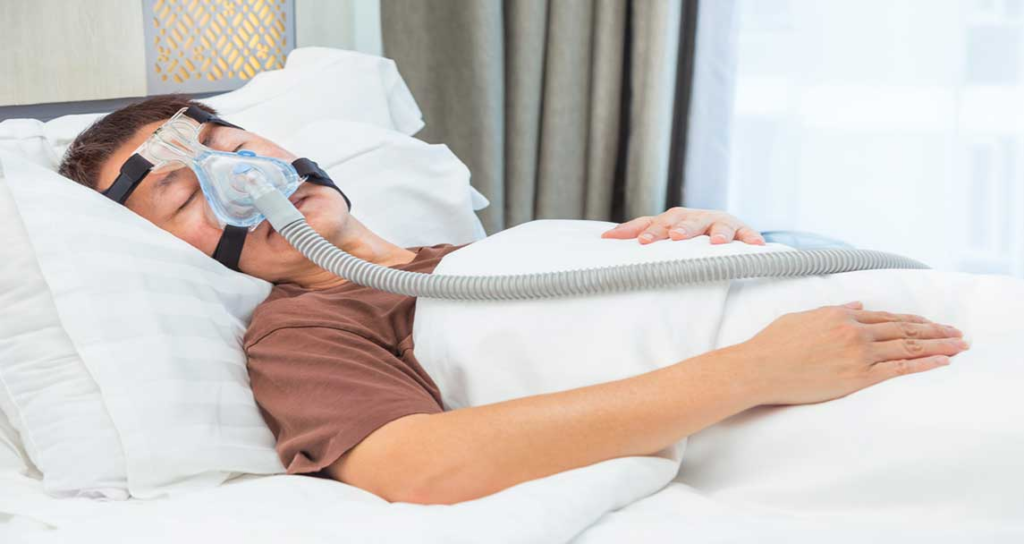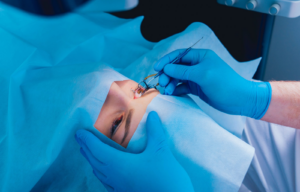
How to use your CPAP machines during hot weather
Australia is renowned for its sunny days and warm weather, even in winter. Although this is great for beach life, it may be a struggle for CPAP (Continuous Positive Airway Pressure) machine users to get a good night’s sleep. When it’s hot, we are tempted to take off the covers, but wearing a mask can make it hard to sleep. It is essential to keep using a CPAP machine every night if you want the treatment to be effective.

Fortunately, it is easier than you think to use a CPAP machine in the heat. To ensure your comfort during those hot nights, this blog provides helpful information and advice on controlling CPAP treatment. CPAP machines are widely used to treat Obstructive Sleep Apnea (OSA) and Sleep Apnea (SA), and a wide variety of CPAP masks are available. read more about how to get the most out of your cpap machine by clicking here
Some of the most popular CPAP masks include the Nasal Pillow Mask, Nasal Mask, and CPAP Direct. A CPAP Device or Pressure Machine is used to deliver air pressure that keeps your airways open during sleep. CPAP Australia provides CPAP therapy to enhance your sleep quality.
Effect of Temperature on Sleep
Using a CPAP machine is an effective way of treating Obstructive Sleep Apnea (OSA). CPAP, or Continuous Positive Airway Pressure therapy, works by delivering air pressure through a mask to keep your airways open. There are many types of CPAP masks available, including nasal pillow masks and nasal masks. Most CPAP masks should be used in conjunction with a CPAP device, which helps to keep the air pressure and temperature of the room at an optimal level for sleep.
Generally, the optimal temperature for CPAP therapy is between 16 and 18 degrees Celsius2,3, as this range is most compatible with the colder temperatures your core experiences in the middle of the night. Low temperatures ensure your body doesn’t warm up too quickly and exit the deep sleep phases too quickly, resulting in a more peaceful night.
Therefore, the optimal sleeping environment is one that is dark, calm, and cool.
So, what do you do in warm weather?
The advantages and disadvantages of your CPAP machine in hot weather
CPAP machines, which use continuous positive airway pressure to treat obstructive sleep apnea, can have beneficial or detrimental effects on sleep quality. Most CPAP masks, such as nasal pillow masks, nasal masks, and full face masks, cover the mouth and nose, trapping heat and creating insufficient airflow on the face and neck. you can buy cpap machines online
This can cause perspiration and an increase in body temperature, leading to restlessness and a decrease in sleep quality. CPAP Australia and CPAP Direct offer a range of CPAP devices and masks to help you find the right one to help you get a good night’s sleep..

If you have been diagnosed with sleep apnea, a new CPAP machine may be the best treatment for you to get a good night’s sleep. The right CPAP machine pressure settings can make a huge difference in your comfort and help you sleep better. You can talk to your sleep doctor about the type of CPAP machine that is best for you, such as BiPAP machines, APAP machines, or even a bilevel machine with two pressure settings.
When the weather is warmer, it can be a welcome reprieve since the air contains more moisture. This moisture is usually enough to make breathing more comfortable as it won’t dry out your nose, throat, and mouth. However, too much humidity can cause condensation in the tubing and mask, leading to your device making sputtering noises and even water droplets falling on your face when you’re asleep. To avoid this, you must find the perfect balance between the two. You can do this by adjusting the pressure settings on your CPAP machine. If you find the pressure too strong, you can lower it to make it more comfortable. This can help you prevent skin irritation and still get the restful sleep you need.
Handling Extra Moisture While Wearing Your CPAP Mask
If you have been diagnosed with a sleep disorder, your doctor may recommend a CPAP machine as a common treatment. The right CPAP machine can provide you with a good night’s sleep. Depending on your needs, you may choose a machine with one pressure setting or two pressure settings (BiPAP/APAP machines). Your CPAP machine may also have a humidifier to help manage dryness, however you may need to lower the function during warmer weather due to the increased humidity.

The extra moisture from the air in your bedroom will pass through your machine and into your airways, preventing your sinuses and passages from drying out. You should keep your humidifier on high if you live in a dry area or if the temperature inside your house is higher than the outside. It is important to be aware that a buildup of condensation in the mask and hose, known as “rainout”, can occur due to excessive moisture which can lead to skin irritation. Your sleep doctor can help you adjust the pressure settings to help you get the most out of your CPAP machine.
There are several methods to assist you in managing this:
- Place the CPAP on the floor or at a lower position so that the extra moisture doesn’t flow into the mask and splash your face. Try lowering the humidifier’s setting.
- To maintain a steady temperature and humidity level, use a tubing, learn more about tubing by clicking here
- These suggestions can assist in reducing humidity so that you can breathe more easily and prevent your mask from becoming too wet as you sleep.
Running the humidifier with cooled water
For those diagnosed with a sleep disorder, the most common treatment is using a CPAP machine, which stands for Continuous Positive Airway Pressure. However, in hot temperatures, some CPAP machine users experience discomfort due to the breathing mask creating steamy, wet conditions. A helpful tip is to store distilled water in the refrigerator and pour it into the humidifier chamber just before going to bed.
This cooled water will produce moisture without the heat that causes rainout or steam. It might be beneficial to try this technique to keep the excessive heat under control while preventing a dry mouth, nose, and throat, but it could be different for each individual. For a better night’s sleep, a sleep doctor may recommend either a BiPAP machine or APAP machine, both of which have two pressure settings, or a lower pressure single pressure machine.
Skin irritation can be an issue but can be remedied by using the right CPAP machine for your individual needs, as well as ensuring the pressure settings are set correctly. It is important to use distilled water as it gets rid of minerals, pollutants and other potential health hazards. If distilled water is unavailable, bottled water is the next best choice.


